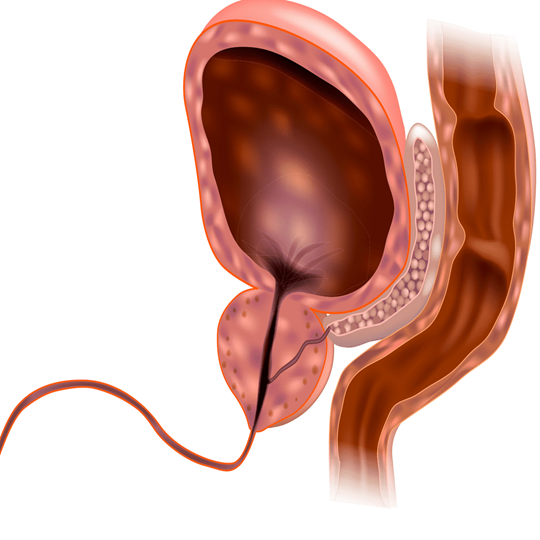What is Bladder Prolapse Cystocele Surgery?
Bladder Prolapse Cystocele Surgery | Bladder prolapse is called “cystocele” in the medical literature and is the condition in which the bladder sags downwards from its normal place as a result of weakness or damage to the pelvic organs. This condition is associated with the weakening of the pelvic floor muscles and connective tissues. It is more common in women, but can also be seen rarely in men.
Bladder prolapse is usually associated with factors such as aging, childbirth, excessive weight, and heavy lifting. Weakness or damage to the supporting structures of the pelvic organs can cause the bladder to fail to maintain its normal place and sag downwards. This condition can manifest itself with symptoms such as a bulge or swelling in the lower part of the bladder, frequent urination, urinary incontinence, and pain during sexual intercourse.
What are the risks of cystocele surgery?
Bladder Prolapse Cystocele Surgery | Cystocele surgery is a surgical intervention performed in cases where the bladder prolapses. As with every surgical procedure, cystocele surgery also carries some risks. These risks may include:
General Anesthesia Risks: Complications may occur depending on the general anesthesia used during the surgery. In rare cases, serious complications such as allergic reactions or respiratory problems due to anesthesia may occur.
Infection Risk: There is a risk of developing an infection after surgery. This is associated with the occurrence of infections in the surgical area or urinary tract. If the infection is serious, additional treatment may be required.
Bleeding: There is a risk of bleeding during or after surgery. Bleeding, especially in surgeries performed in the pelvic area, can lead to serious complications and may require additional intervention.
Urinary Tract Damage: During cystocele surgery, there is a risk of damage to the urinary tract and perforation of the bladder. This may occur during surgical interventions for the bladder, urethra or other pelvic organs. It can often be corrected spontaneously or with surgical interventions with catheter follow-up.
Wound Healing Problems: Wound healing problems may occur in the surgical area. This risk may be higher especially in people with chronic health problems such as diabetes or in smokers.
Urinary Incontinence or Incontinence: After cystocele surgery, some people may experience urinary incontinence or urinary retention problems. Most of the time, in people with severe bladder prolapse, the underlying hidden urinary incontinence problem may not be noticed. After the prolapse problem is corrected, the underlying hidden urinary incontinence problem may come to light and therefore the patient may need to undergo a second surgery.
Bladder Prolapse Cystocele Surgery | Before the surgery, your surgeon will examine you in detail and provide you with information to determine the most appropriate treatment option for you and to evaluate possible risks. Therefore, it is important to have open communication with your doctor before and after the surgery.
Bladder Prolapse Cystocele Surgery | Ultrasonography can be used as a diagnostic tool for bladder prolapse and can play an important role in surgical planning or determining treatment options. However, during the diagnostic and evaluation process, ultrasonography results are usually evaluated in conjunction with other imaging techniques or clinical findings.
How Long Does Cystocele Surgery Take?
Bladder Prolapse Cystocele Surgery | The duration of cystocele surgery can vary depending on many different factors. However, cystocele surgery usually lasts approximately 1 to 2 hours. This duration may vary depending on whether other surgical procedures will be performed during the surgery, the patient’s general health, surgical techniques, and the surgeon’s experience.
Here are some factors that affect the duration of a cystocele surgery:
Degree of Cystocele: The severity or degree of cystocele can affect the duration of the surgery. More serious or advanced prolapses may require mesh application and may take longer to correct.
Accompanying Conditions: Cystocele is usually associated with other conditions of the pelvic organs. For example, the presence of additional pelvic organ prolapses such as stress urinary incontinence, uterine prolapse, or rectocele may require additional surgical procedures and increase the duration of the surgery.
The Patient’s General Health Status: The patient’s general health status may affect the duration of the surgery. Surgery may take longer, especially in patients with chronic health problems or in elderly patients.
Surgeon’s Experience: Bladder Prolapse Cystocele Surgery | The surgeon’s experience and expertise can affect the length of the surgery. More experienced surgeons can usually perform the surgery more quickly and effectively.
Bladder Prolapse Cystocele Surgery | The length of cystocele surgery can vary depending on the surgeon and the patient’s specific conditions, so Assoc. Prof. Dr. Esra ÖZBAŞLI can give you a more accurate estimate of how long the surgery will take before the surgery.







